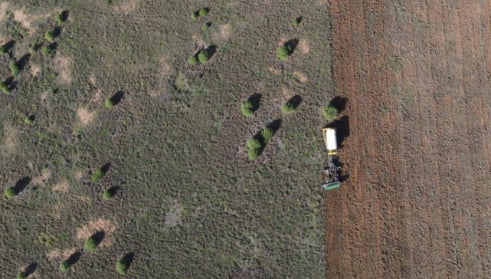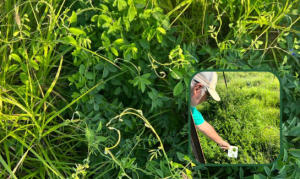ABOVE: The Prices run offsets across areas of pasture dieback in preparation for planting Progardes® Desmanthus. (Photo: Rob Price)
The problem
Livestock naturally avoids grazing on dieback affected grasses, so the condition can drastically affect productivity.
Like so many graziers across Queensland and Northern New South Wales, Brigid and Owen Price have experienced first-hand, the devastating effects of pasture dieback. With up to 1,500 hectares of their 21,000ha operation badly affected, they set out to develop a management plan to reduce the impacts.
Progardes® – the solution
Dieback only affects summer growing grass species such as Buffel and broadleaf paspalum, with legumes and some other semi-broad leaf species unaffected.
The Prices produce organic beef, so introducing Progardes® Desmanthus to improve pasture quality and provide a palatable feed source was the ideal, natural solution.
Progardes® Desmanthus Benefits
- Thrives in both alkaline and neutral clay-rich soils and adapts to all sorts of harsh conditions
- Easy to establish
- Long-term persistent and drought tolerant
- Contributes to building soil nitrogen
- Highly palatable – livestock actively seek it out
- Has a high protein content which noticeably improves animal live weight gain




